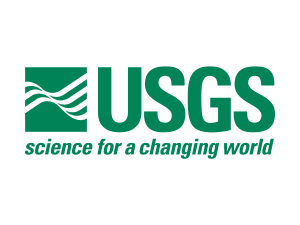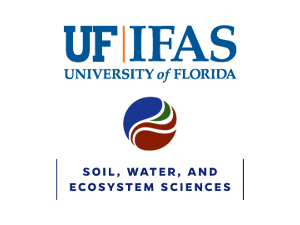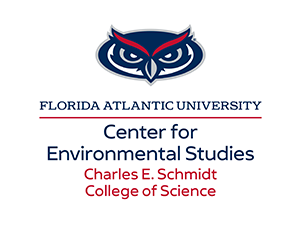2025 Sponsor Recognition
It is only through the generous financial contributions from our sponsors that make this event possible. Their donations are greatly appreciated. Interested in becoming a sponsor? Visit the Sponsorship Opportunities page.
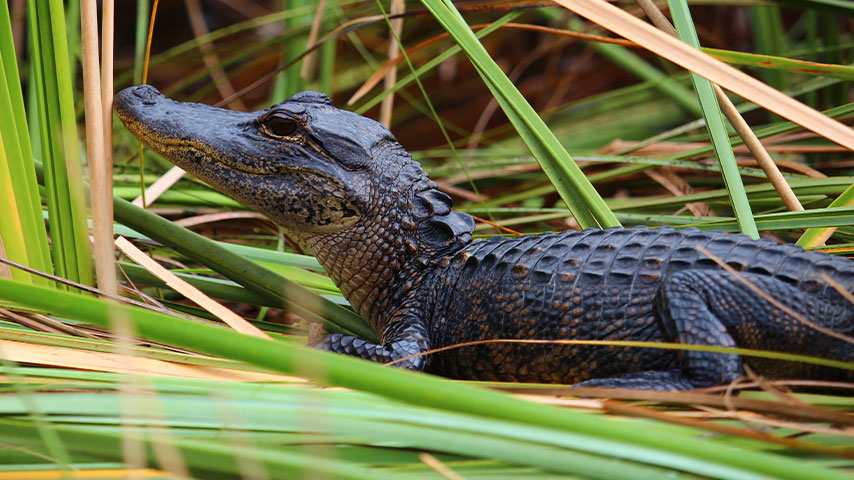
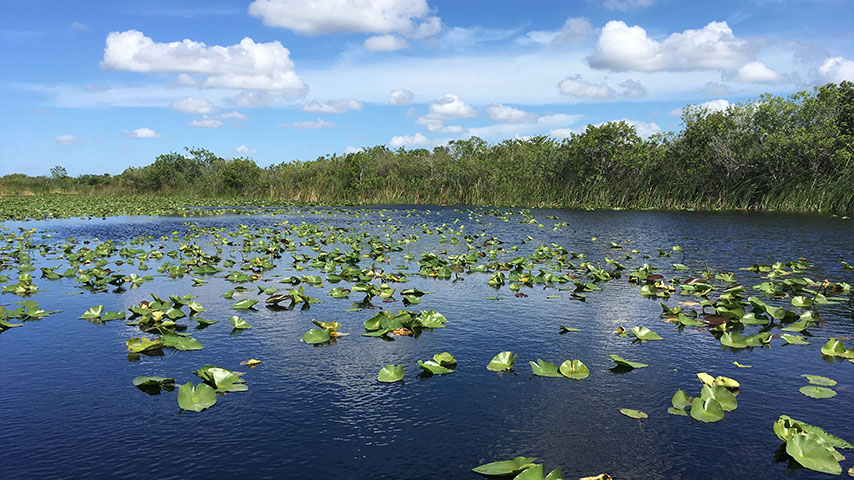
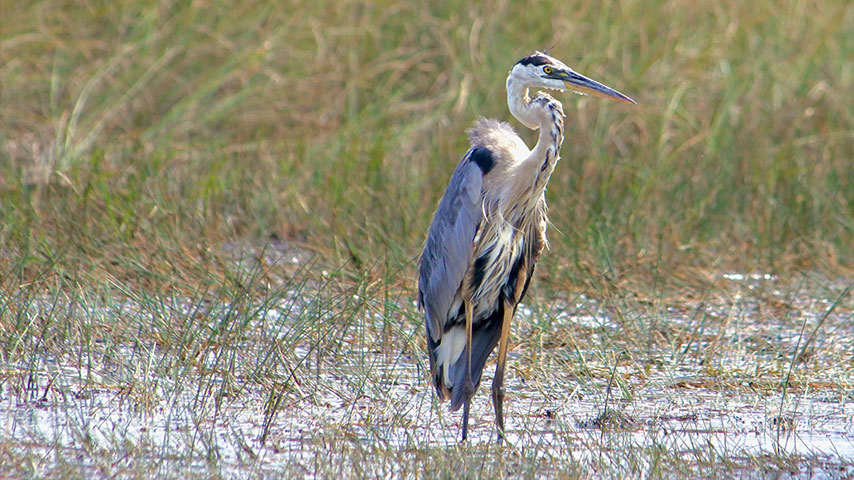
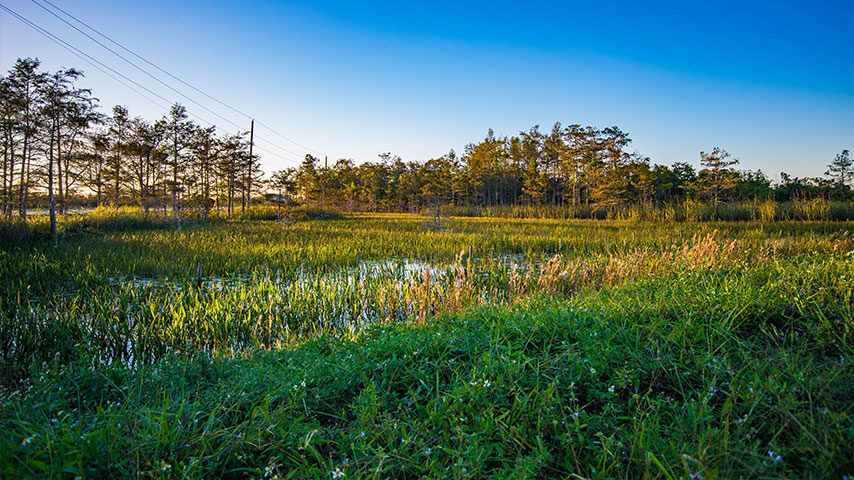
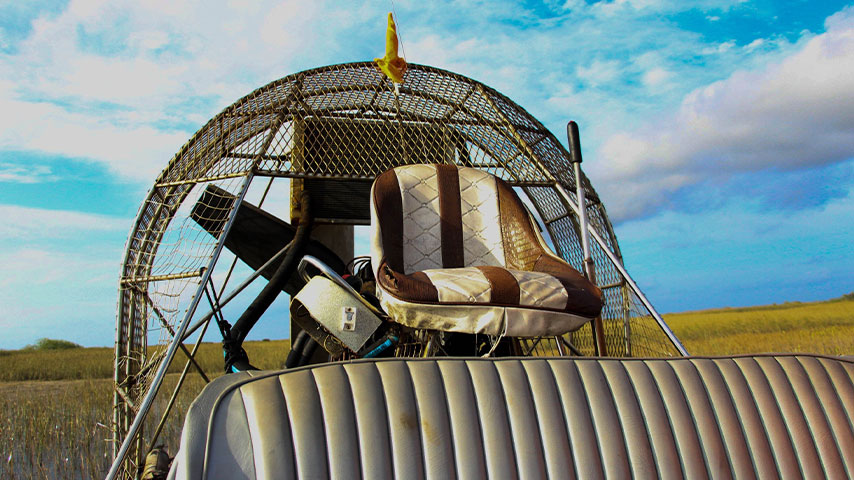
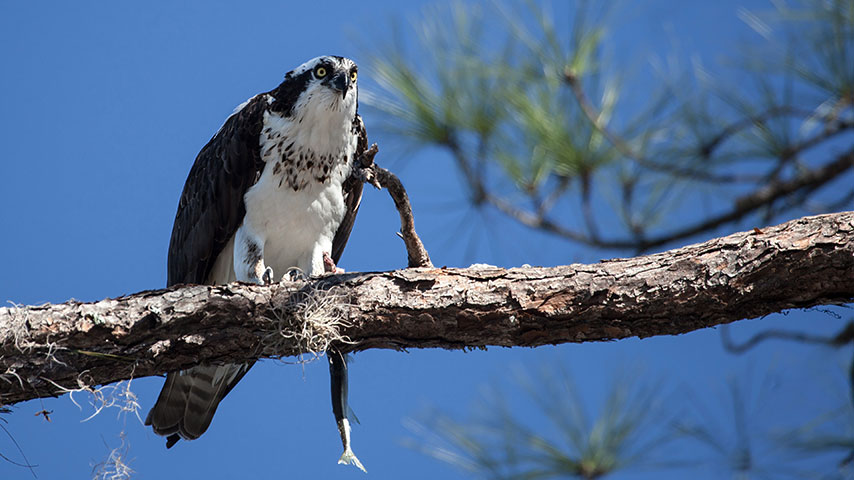
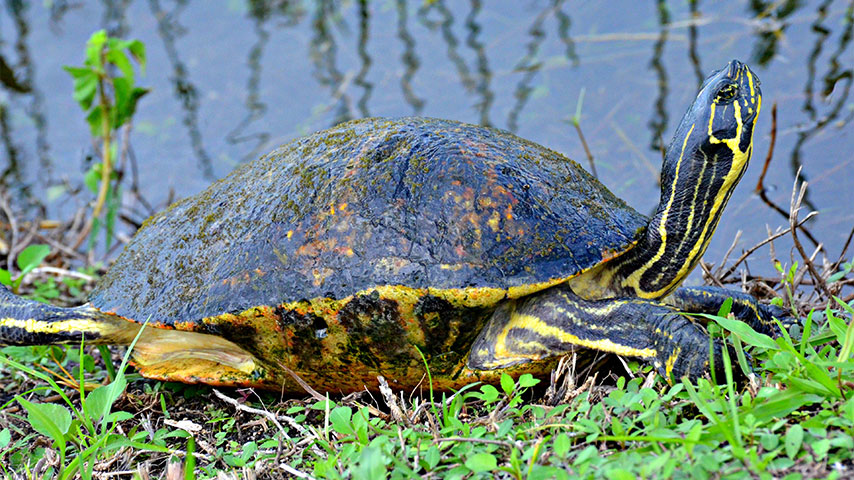
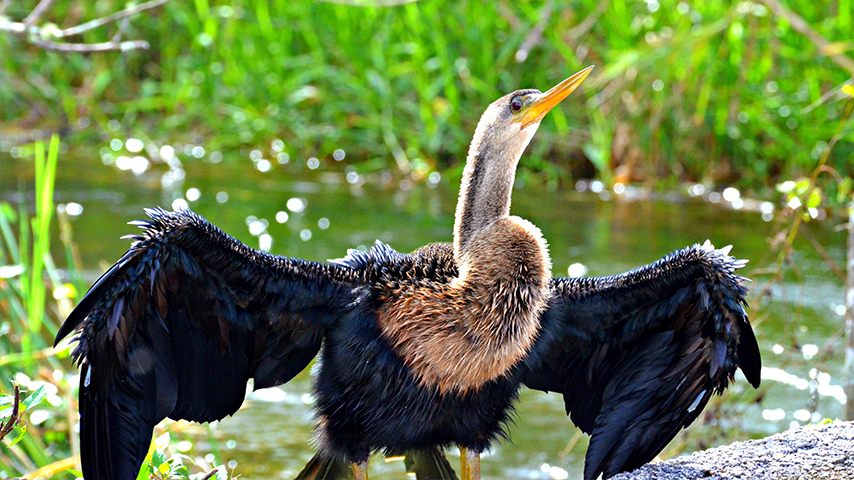
It is only through the generous financial contributions from our sponsors that make this event possible. Their donations are greatly appreciated. Interested in becoming a sponsor? Visit the Sponsorship Opportunities page.








We are dedicated to providing a harassment-free experience for everyone, regardless of gender, gender identity and expression, age, sexual orientation, disability, physical appearance, body size, race, ethnicity, religion (or lack thereof), or technology choices. We do not tolerate harassment of participants in any form. Suggestive statements, sexual innuendo, or offensive remarks are not appropriate during any activity, including during talks, poster sessions, workshops, social functions, after hours parties, via Zoom chat or on Twitter or other online media. Participants asked to stop any harassing behavior are expected to comply immediately. Those violating these rules may be sanctioned or expelled without a refund at the discretion of the organizers. If you are being harassed, notice that someone else is being harassed, or have any other concerns about participant behavior, please notify the organizers immediately.
It is possible you may be contacted by a company claiming to be the official housing bureau for this conference. These companies contact conference exhibitors and attendees, telling them the guest room block is sold out at the host hotel. The company then quotes a rate at another hotel, claiming it is an official room block and that you must reserve through them to get discounted rates. They ask for your credit card information so they can make a reservation for you. DO NOT FALL FOR THIS or you will lose your money. This scam is affecting conferences all over the country. No matter what meeting you attend, always use the hotel reservation links provided on the host organization’s website.
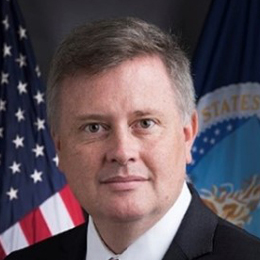
Senior Environmental Markets Analyst, U.S. Department of Agriculture (USDA), Office of Environmental Markets, Washington, D.C.
Dr. Christopher Hartley is responsible for the development of policy, tools, and metrics to facilitate private investment in conservation and the participation of farmers, ranchers, and forest landowners in emerging environmental markets. He previously worked for the Natural Resources Conservation Service in Washington, DC and in California building partnerships to accelerate voluntary conservation and served with the U.S. Peace Corps as an agricultural extension agent in Senegal, West Africa. He is a Certified Crop Advisor, and a licensed Pest Control Advisor with more than 25 years of experience working in support of production agriculture and the promotion of clean air, clean water, and a safe and abundant food supply. Dr. Hartley earned a Ph.D.in Ecology, emphasis Agroecology, M.Sc. Agronomy, MSc. International Agricultural Development from the University of California at Davis.
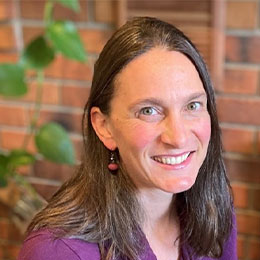
Social Science Research Consultant, U.S. Geological Survey, Langley, WA
Dr. Hoelting received her Ph.D. from the Human Dimensions of Natural Resources Department at Colorado State University. Her dissertation explored pathways for improved consideration of cultural ecosystem services in decision-making. Prior to receiving her doctorate, Kristin spent over a decade conducting social science research for Federal agencies, including NOAA Fisheries and USGS. She currently works as a Social Science Research Consultant with the USGS on questions related to CES knowledge.
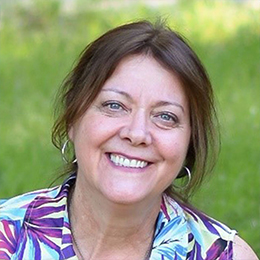
Director, UF/IFAS Office of Conferences & Institutes, Gainesville, FL
Beth Miller-Tipton has served as Director of the UF/IFAS Office of Conferences and Institutes (OCI) for the past 30 years. She has been a guiding force, providing leadership to a creative and devoted planning team whose mission is to unite scientists and professionals focused on a common purpose so they can make a positive impact on the world around them. In addition to management responsibilities, Beth also coordinates several large scientific conferences, including ACES.

Science Information Specialist, U.S. Geological Survey, Reston, VA
Shonté Jenkins is the Science Information Specialist at the US Geological Survey (USGS) Science and Decisions Center (SDC) in Reston, VA. While at the center Shonté has been instrumental in producing products, which communicate the many efforts and projects by the SDC scientists within the center through print and digital media. Shonté is passionate about early education outreach and bringing more diversity to science. She pursues these efforts for the center and across the USGS as a member for the Diversity, Equity, Inclusion, & Accessibility (DEIA) Council. Shonté has served an active role in the A Community on Ecosystem Services (ACES) conferences as a program and planning committee member since 2012 and more recently as Co-Chair. In addition to her many professional accomplishments, Shonté considers her greatest accomplishments being a mother, wife, and woodworker loving life in beautiful and rural Northern VA.
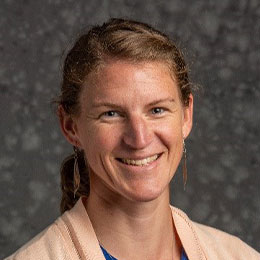
Biological Science Specialist, U.S. Department of Agriculture, NIFA, Kansas City, MO
Erika Kraus is a Program Specialist at the National Institute of Food and Agriculture, USDA. She works with competitive grant programs that support graduate students, including the Pre- and Postdoctoral Fellowships within AFRI, and the National Needs Fellowships. She also supports the Food and Agriculture Non-formal Education competitive grant program. Erika was an ACES Graduate Fellow and volunteer in 2018 as a PhD candidate attending Michigan State University in Forestry.
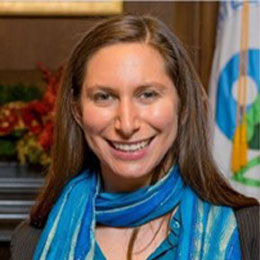
Ecologist, U.S. Environmental Protection Agency, ORD, Cincinnati, OH
Tammy is an ecologist with EPA’s Office of Research and Development, Center for Environmental Measurement and Modeling. Her current work portfolio is divided into restoration effectiveness and ecosystem services research. She leads the habitat restoration research as part of the Great Lakes Areas of Concern "Remediation to Restoration to Revitalization" (R2R2R) research team composed of ORD, GLNPO, and other Federal and local partners.

Assistant Center Director, CCTE MI: SHC and SSWR US, Environmental Protection Agency, ORD, Gulf Breeze, FL
Dr. Marc Russell is responsible for his Center’s planning and implementation of research in EPA’s Sustainable and Healthy Communities and Sustainable and Safe Water Research Programs. He works with other EPA centers, offices, national research programs, and communities to develop innovative, scientifically sound, and sustainability focused decision support tools. These tools assure that the integrated research vital to the future of environmental protection is robust, defensible and useful. Dr. Russell specializes in landscape system ecology with foci in estuarine net ecosystem metabolism, freshwater inflow, landscape characterization, net anthropogenic nutrient budgets, system dynamics models, functional equivalency, ecosystem services, and natural capital accounting.
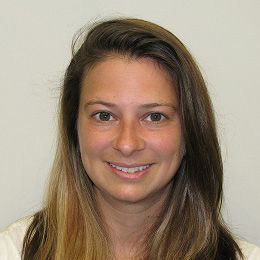
Decision Scientist, U.S. Environmental Protection Agency, ORD, Gulf Breeze, FL
Leah Sharpe is a Decision Scientist with the Gulf Ecosystem Measurement and Modeling Division of ORD’s Center for Ecosystem Measurement and Modeling. She joined EPA in 2016 and, since then, has been working to incorporate ecosystem service thinking into decision making processes and developing tools and approaches for doing so. Prior to her time at the EPA she worked for NOAA Fisheries where she focused on decision support, science communication, and policy analysis.
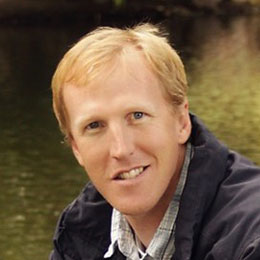
Research Economist, USDA Forest Service, Rocky Mountain Research Station, Fort Collins, CO
Dr. Travis Warziniack is a research economist with the USFS Rocky Mountain Research Station. His work focuses on valuation of ecosystem services, with an emphasis on watershed health, climate impacts to water resources, and nature’s role in regional economies. He leads the development of natural capital accounts for forests in the U.S. and serves as the water specialist for the Resource Planning Act (RPA) Assessment, which looks at the status and trends of the nation’s renewable natural resources. Prior to working at the Rocky Mountain Research Station he was a professor of environmental economics at the University of Heidelberg, Germany and worked as a consultant in economic development. He received his PhD from the University of Wyoming in 2008.
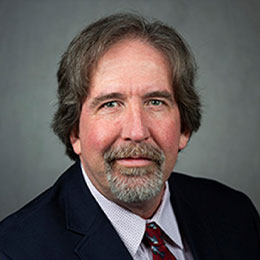
Chair, UF/IFAS Soil Water, and Ecosystem Sciences, Gainesville, FL
Dr. Matt Whiles is Professor and Chair of the Soil, Water and Ecosystem Sciences Department at the University of Florida. Leading a department of forty-eight faculty members, including sixteen at Research and Extension Centers located throughout the state. Before moving to UF, Whiles was a Professor at Southern Illinois University (SIU), where he directed the Center for Ecology and the Cooperative Wildlife Research Laboratory. Matt holds a Ph.D. in Ecology, a masters in Entomology and a Bachelor of Science in Biology. Matt’s research focuses on quantifying the roles of animals in freshwater ecosystem function. He has led numerous large, collaborative projects, including the Tropical Amphibian Declines in Streams (TADS) project examining the ecological consequences of amphibian declines. He has worked closely with agencies and NGOs on stream and wetland management and restoration and served on numerous panels guiding management of freshwater habitats.
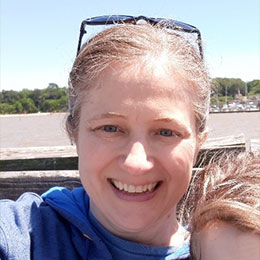
Ecologist, U.S. Environmental Protection Agency, ORD, Gulf Breeze, FL
Susan is an ecologist with EPA’s Office of Research and Development, Center for Environmental Measurement and Modeling since 2006, where she started as a postdoc modeling impacts of climate stressors on coral reef health. She is currently working on projects to identify and quantify the benefits of ecological restoration for coastal communities, including Massachusetts Bay and the Chesapeake Bay.
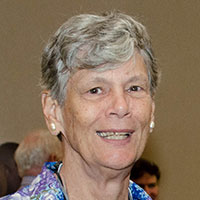
Maggy’s impact on Florida’s conservation movement cannot be overstated. She’s the reason developers can’t fill in wetlands in Martin County, and the reason I-95 bends away from Stuart. During her 20 years as a Martin County commissioner, she helped craft development rules that made the community a leader in the state for environmental preservation. Her advocacy was fueled by a deep love for Florida’s wilderness. She kayaked as often as she could, and spoke about the Everglades to anyone who would listen.
Those of us who had the honor of joining Maggy for a paddle gained a new appreciation for the magic of mangrove tunnels, and we were often treated to a recitation of poetry. She was inspiringly irreverent, and she left a mark on our community that will not be forgotten.
Maggy worked as an advocate until her final days. She sat on Friends of the Everglades Policy & Science Committee, always offering insightful context. She was an eternal optimist, and a generous heart. Maggy also served five terms as County Commissioner in Martin County, Florida, where she was a driving force behind the creation of the county’s highly regarded Comprehensive Growth Management Plan, which is arguably the best in the state for its environmental protections. Her efforts are reflected today in the low-density model Martin County enjoys, unique among its neighbors in South Florida. Maggy served on numerous commissions and committees at the regional and state level including Governor Askew’s Blue Ribbon Transportation Committee, the State Comprehensive Plan Committee, Governor Chiles’ Growth Management Task Force, and was Chairperson of the original Treasure Coast Regional Planning Council.
Among the many awards she received for defending our natural resources are the Martin County Conservation Alliance lifetime award, the Audubon of the Everglades Conservation Award, Florida Association of Environmental Regulators-Environmentalist of the Year 1994, the Everglades Coalition “George Barley Conservationist of the Year Award” 2002, the 2003 National Wetlands Award for Volunteer Leadership, the Everglades Coalition Hall of Fame Award, and the Marjory Stoneman Douglas Defender of the Everglades Award. Her work on wetlands conservation in Florida earned her national recognition as an expert on Florida’s wetlands. She continued to serve on advisory councils such as the Governor’s Commission for a Sustainable South Florida even after leaving office and remained involved in the battle for Everglades restoration until her death in 2022.
Maggy led an incredible life of adventure outside of her advocacy for the Everglades, frequently traveling and kayaking the waters she worked so hard to protect. Most of all, Maggy brought people together around one very central idea, that we are all connected by water.

Rob Bennetts is most well known for his contribution to understanding the ecology and conservation of the endangered Florida Snail Kite. Although he left Florida in 2003, his influence is recognized 20 years later based on his identifying and quantifying the interconnectedness between Snail Kites, apple snails, wetland plant communities, and hydrology. Protocols for monitoring Snail Kites, and ideas on how to monitor and conduct research on kites and snails, are still being applied in 2023.
Rob started working on Snail Kites in 1986, and was subsequently first author on a comprehensive report on Snail Kite nesting in the Everglades (Bennetts, Collopy, and Beissinger 1988). At that point in his career he had earned his Bachelor's degree from the University of Montana. In that 1988 report, Rob (again, with a Bachelor's degree) put in writing several hypotheses about what influenced Snail Kite foraging success and reproduction, many of which resulted in funded grants in the 1990s and 2000s that created empirical data that supported his ideas from the 1980s. He left Florida and began work on his Master’s degree in 1988 at Colorado State University (thesis advisor Dr. Gary White); this is where he began his long career emphasis on quantitative aspects of wildlife movements and demography and habitat quality assessment.
Rob returned to Florida in 1991 to pursue a PhD at the University of Florida with Dr. Wiley Kitchens as his advisor. They designed and executed one of the largest projects, in terms of scale and scope, on a single species in Florida. The radio-tracking data obtained revealed novel information on the extensive movements, exploratory behavior, and survival patterns of Snail Kites, and created a new perspective on the scale at which kites successfully navigate wetlands spread out over 8,000 square miles. Rob et al. produced 22 published manuscripts on kites, three book chapters, and five manuscripts on snails, on which he was first author or co-author. Rob was generous in his sharing of data to include first-authorship for students and field staff as he mentored their careers.
As great an influence as Dr. Bennetts had on our understanding of Snail Kites in Florida, he had just as much influence, if not more so, once he left Florida to lead, as a quantitative ecologist, monitoring and adaptive management programs for the National Park Service out west. He worked at Grand Teton and Yellowstone National Parks, but in the last 10 years of his career he cherished his work on lesser known parks such as Sand Creek Massacre National Historic Site, Fort Union National Monument, Bent's Old Fort National Historic Site, and Washita Battlefield National Historic Site.

Cpt. Truman Eugene “Gene” Duncan passed on to his final adventure on November 22nd, 2022 after a battle with cancer. He is survived by his wife, mother, two sisters, son, two grandsons, and his dog. Gene was a kind and selfless man, whose contributions to the Miccosukee Tribe of Indians of Florida will not be forgotten.
Originally from Kentucky, Gene graduated with a Bachelor of Science in Geology from Morehead State University and a Master of Science in Geology from Eastern Kentucky University, before being commissioned in the U.S. Army and credentialed as a Counter-Intelligence and Human Intelligence Officer. He graduated Basic and Advanced Military Intelligence School and the Army’s Helicopter Flight School. Gene first entered the Tribe’s employ in August of 1988, after a career in the U.S. Army’s 101st Airborne Division, Battalion S-2 and the 11th Aviation Group, VII Corps.
Gene first began working in the Tribe’s Real Estate Services (now the Land Resources Department) and was passionate about geology and hydrology, motorcycles, small arms, and the protection of the Everglades ecosystem. In 2008, while working for the Tribe, Gene also received a commission as a Merchant Marine Officer. Observing the poor water quality on the reservation, Gene advocated for the creation of the Tribe’s Water Resources Department and became the inaugural Director of the same.
As the Tribe’s first Water Resources Director, Gene successfully advocated for Tribal control of water quality regulation on Miccosukee lands and helped author the comprehensive Miccosukee Environmental Protection Code. He acted as the Tribe’s liaison to state and federal environmental agencies. In that capacity, Gene served on many advisory committees including the Florida Water Resources Advisory Committee and the federal Everglades Ecosystem Restoration Task Force and Working Group and testified in state and federal court as an expert witness for many environmental lawsuits.
Gene was known for never doing anything halfway, and always taking the time to mentor those around him and share his knowledge. Whether responding to the aftermath of a hurricane or wishing an employee a happy birthday, Gene would be sure to check in on his coworkers. In the office and out, he was always the Director. His life will be remembered by the Tribe and his coworkers as a monument to servant leadership, Tribal sovereignty, and the protection of the Everglades.
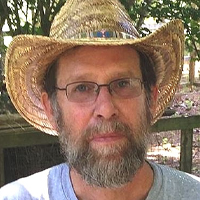
Paul Conrads, 60, passed away suddenly on December 2, 2017. For the past 30 years, Paul Conrads worked with the U.S. Geological Survey in the South Atlantic Water Science Center in a variety of activities. He served as the Surface-Water Specialist in South Carolina. Principally, he was responsible for data collection, data analysis, and hydrodynamic and water-quality model applications, and Total Maximum Daily Load (TMDL) development. He assisted many water utilities, state agencies, universities and non-profits in making science-based decisions in water-resource management. He was on the cutting edge of science with regard to “big data” and data mining. He was one of the pioneers of Artificial Neural Networks, a science that utilized the real-time data of the USGS with a means to understand the effects of drought, which are challenging to quantify adjacent to the ocean. His work in this field was recognized internationally.
Paul also developed models for the majority of the river systems in South Carolina, provided technical assistance to U.S. Environmental Protection Agency (USEPA) Region IV TMDL Program and was a member of the Federal Technical Review Team of the development of the hydrodynamic and water-quality models developed for the Savannah Harbor Expansion Project. For the past 11 years, he worked on various projects in the Florida Everglades. He studied coastal drought and the influence of increased salinity stress on the structure and function of ecological habitats, and had recently developed a unique coastal drought index using salinity data.
Paul grew up in suburban Washington, D.C. and received a degree in History and American Studies from Connecticut College. He attended Landon School, Connecticut College. He was a huge Gamecock supporter in all sports and an avid follower of the Baltimore Orioles and the Washington Redskins. He was also a Peace Corps volunteer and spent two years in West Africa building potable water supply and sanitation systems in the neighborhoods of the capitol city of Liberia. After returning to the US, he earned an undergraduate and Master’s degrees in Civil Engineering at the University of South Carolina.
Paul loved his work but also his fishing, gardening, cooking and anything new he could conquer. As one colleague wrote, “Paul was truly special in a way that very few people are. It was easy to love him — his zest for life, his intelligence, his endless willingness to help, his love of good food and wine, his mischievous way and so much more. I can honestly say that I know no one who compares to his integrity of spirit.”
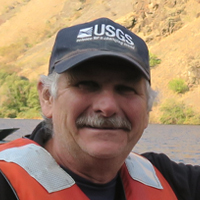
Everglades scientist and long-time U.S. Geological Survey (USGS) researcher Dr. George R. Aiken passed away on December 7, 2016. George spent his entire forty-year professional career as a research scientist with the USGS, located in Denver and Boulder, Colorado. Over that time period, George became prominently recognized nationally and internationally for his contributions to the field of biogeochemistry, with particular emphasis on the controlling influence that natural organic matter has on key chemical processes in ecosystems, including the Greater Everglades ecosystem that he dearly loved.
George joined the USGS in March 1976 with the Central Region of the USGS National Research Program (NRP) in Denver, Colorado. Before joining USGS, George earned a B.A. degree in Chemistry from Rutgers University. From 1976 to 1979, George worked with NRP’s Organic Hydrogeochemistry Project, and it was then that he first encountered what would become the focus of his forty-year research career: unraveling the complexities of the importance of natural organic matter on controlling aqueous biogeochemistry of groundwater and surface water systems. Early in his research career, George focused on the design of new chromatographic techniques for isolating humic substances from natural waters, the movement of organic solutes in groundwater, and the effects of humic substances on water purification systems. Also during this time, George completed a M.S. in Analytical Chemistry at the University of Colorado.
During the 1980s, George spent considerable time traveling great distances in a mobile water quality lab studying seasonal and geographical differences in aquatic dissolved organic carbon (DOC) across the United States. It was during this time that he also garnered an encyclopedic understanding of the streams, watersheds and landscapes of the United States. For those fortunate to have a chance discussion with George, he called upon those experiences to help others understand the factors controlling surface water quality across the US. George also took several tours to Antarctica, where he studied DOC in lakes and streams, one of which bears his name. Typical of his dedication and love of his work, George over-wintered twice in Antarctica to ensure he would be able to study the full range of conditions in the harshest environment on the planet. In 1991, he achieved a lifetime goal by receiving a Ph.D. in Applied Chemistry (Minor in Geologic Engineering) from the Colorado School of Mines.
The USGS initiated the Aquatic Cycling of Mercury in the Everglades project in 1995, and George was among a select few scientists asked to join a multi-disciplinary research team focused on understanding the causes for elevated levels of mercury in the aquatic food web of the Everglades. At that time, the global mercury research community broadly noted that mercury and DOC usually positively correlated, and that DOC had something to do with the key process known as mercury methylation. Providing a much more mechanistic and fundamentally based understanding of the role DOC played mercury cycling became a central focus of George's career from that point forward, both in the Everglades and across the globe. He gave countless well-received presentations, including one at every GEER meeting, where he impressed upon the audience that “the yellowish color of the water inherent of the Everglades is like hemoglobin to our blood.” He was among the first researchers anywhere to recognize that the methylation process was inextricably linked to the presence of DOC. But, as George would often humor his GEER audiences and remark, “The Everglades is like a giant teabag. The DOC that leaches from that bag can be like Red Zinger or Sleepy time. Sometimes it can greatly increase mercury methylation, and sometimes not, depending more on the quality of the DOC than the quantity, which is not unlike a fine wine or beer.”

Everglades scientists, along with the entire south Florida restoration community, were very saddened to learn about the passing of John Marshall on March 28, 2016. John was passionate, knowledgeable and proud, and he was a long-time supporter of good science. He attended every single GEER conference, and we can be sure he would have been at GEER 2017. In addition to his own attendance, John always brought along a contingent of student interns, and encouraged their participation in the conference. An impressive cadre of bright, energetic individuals now beginning their promising careers owe their Everglades introduction to John and will always treasure his mentorship.
The long-time patriot, gator fan, and environmentalist was known and respected throughout the country as a trusted colleague, true friend, humanitarian, devoted husband, step-father, uncle and a nemesis to those who did not support his commitment to preserving the environment!
John Marshall founded the Florida Environmental Institute and the Arthur R. Marshall Foundation in 1998. The foundation was created to continue the work of his uncle, Arthur R. Marshall, renowned environmentalist and namesake of the Arthur R. Marshall Loxahatchee National Wildlife Refuge. This refuge is only one of twelve refuges in the United States named after a person. John and wife Nancy, as co-founders of the organization, devoted themselves to fulfilling Arthur Marshall's dream and were actively involved on a daily basis for 17 years as chairman and president respectively.
After his uncle passed, John Marshall knew that he would dedicate his life to the preservation and restoration of the Florida Everglades and its ecosystem. He was responsible for planting thousands of trees at the refuge and other bio-sensitive areas, and delivering science-based education and public outreach programs to educate children throughout Palm Beach County to become stewards of the environment.
His commitment to the environment included chairing the Environmental Action Committee for the South Florida Water Management District; he was a member of the Everglades Coalition, a spokesman for the Florida Environmental Institute, and a vice president of the Friends of the Refuge.
John was named 2001 "Conservationist of the Year" by the Audubon of the Everglades and the Florida Wildlife Federation. He was also the recipient of the 2003 "Conservationist of the Year Award" from the Flagler chapter of Daughters of American Revolution and in 2004, received the Environmental Education Award from the Florida Association of Environmental Professionals. Most recently, Marshall received a Commendation from the Everglades Foundation for his "Leadership and Service in Protecting America's Everglades."
A career military officer, John Marshall saw active duty in the United States Marine Corps from 1963-1971, serving his country in Viet Nam where he received 19 air medals for 275 air combat missions. John was recognized on numerous occasions, including a Meritorious Unit Commendation while commanding the Headquarter & Maintenance Squadron-31, and an Acquisition Reform Proposal to the Department of Defense was endorsed by the Secretary of the Navy. He served as a U.S. Marine Corp Reserve Officer from 1971-1993 and received a Meritorious Assignment to the Office of the Secretary of Defense, Test & Evaluation in 1992 and 1993. During this time, John also received the Secretary of the Navy Marathon Man award for completing the first 17 USMC marathons. He retired as Colonel in 1993 having accomplished many significant achievements. He later served as a U.S. civil servant systems engineer until his retirement in 1997. Semper fidelis!
Blue and orange were John's colors, from his sneakers to his car. He was a passionate gator fan and graduated the University of Florida with a B.S. in Geology in 1963. He graduated Naval Flight School in Pensacola, FL in 1966 and Radar Intercept Officer School in Brunswick, GA in 1967. He continued his studies at the Navy Top Gun Fighter Weapons School in Miramar, CA, in 1970 and was a NASA Fellow in Biological Applications in Remote Sensing from 1970-1972. He received a M.S. in Systems Engineering from the University of West Florida in 1972.
John Marshall's community involvement included serving on the board of trustees of the Commandery of The Palm Beaches and the Sovereign Order of St. John of Jerusalem, Knights Hospitaller.
John, you will be missed sorely – by us and by the Everglades.
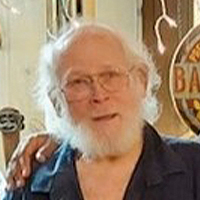
Dr. Michael Bassett Robblee, Ph.D., born on January 12,1948, was a well-respected and beloved marine ecologist and dedicated mentor, who passed away peacefully on August 16, 2023, in Miami, Florida, at the age of 75, following an extended illness.
Born to Paul A. Robblee and Alma P. Robblee, Mike is remembered with deep affection by his family, including his siblings Rosemary R. Phillips and Paul A. Robblee, Jr. and his sister-in-law Joanne. Mike’s academic journey began at Virginia Military Institute, where he earned a Bachelor of Science degree in Biology in 1970 while playing college football. His service to his country as an Infantry officer in the U.S. Army Reserves marked the beginning of a lifelong commitment to both science and service. Following his military service, he furthered his education at Old Dominion University, obtaining a Master of Science degree in Environmental Sciences in 1973 (His thesis was entitled, “Community Structure and Production in a Marsh on the Southern Branch of the Elizabeth River, Virginia”), and completed his doctorate in Environmental Sciences at the University of Virginia in 1986 (His dissertation was entitled “Diel Variation in the Fish Fauna of a Tropical Seagrass Feeding Ground”) under the mentorship of Dr. Jay Zieman (1943-2015), University of Virginia Ph.D. Professor of Environmental Science, and world expert in seagrass ecology.
Mike’s career was a testament to his passion and dedication. For 30 years, he served as a marine ecologist with the South Florida Natural Resources Center and the U.S. Geological Survey. His work focused on the delicate and vital ecosystem of Florida Bay and the surrounding waters. He conducted pioneering research on the impact of environmental changes on estuarine habitats, including the study of pink shrimp as ecological indicators and the causes of seagrass die-off. His contributions were instrumental in advancing the science of Florida Bay and the broader South Florida ecosystem restoration efforts. In fact, Mike was instrumental helping create the Florida Bay Interagency Science Center. He used his personal money to pay for the original trailer at the Key Largo Ranger Station, so visiting scientists could have a place to meet and lodge for scheduled fieldwork.
Mike was not only a respected scientist but also a devoted mentor. He took great pride in guiding junior staff and providing valuable hands-on opportunities for graduate and undergraduate students. His dedication to education and mentorship helped shape the careers of many young scientists, leaving a lasting impact on the field of marine ecology.
Mike’s legacy lives on through his significant contributions to environmental science, his tireless efforts to preserve and restore vital ecosystems, and his profound influence on those fortunate enough to work with him. His passion, integrity, and commitment to his work have left an indelible mark on the scientific community and the natural world he so deeply cherished. Though he is no longer with us, the memory of Dr. Michael B. Robblee will continue to inspire and guide future generations of marine scientists and those who love the Florida Everglades. He will be deeply missed by his family, colleagues, and all who had the privilege of knowing him.

Joan Browder was a tireless champion of Everglades Restoration, a prolific and dedicated scientist, and a beloved colleague. She had a 46-year long career as a fisheries biologist and ecologist for NOAA’s National Marine Fisheries Service, and much of her work was focused on the estuaries and marine environments of south Florida. She was a regular attendee at CERP meetings, being an integral part of the scientific teams on the Southern Coastal Systems Subteam of RECOVER, the Biscayne Bay Coastal Wetlands group, the Biscayne Bay Southeast Everglades Restoration team, and many others over the years. Joan was a determined and unwavering advocate at those meetings and her small stature and calm demeanor misled many. She had a quiet but persistent way of being heard, pressing her points with steady resolve, and never letting an important issue be dropped. Her tenacity and dedication had a lasting impact on countless discussions and decisions.
Joan grew up in in Texas. In 1960, Joan and her husband, Joe Browder, and their two sons moved to south Florida. During those early years in Florida, Joan explored the Everglades and ran a tropical nursery, but she decided to return to school and earned her bachelor’s and master’s degrees in biology from the University of Miami. Joan then continued her education, earning her Ph.D. from the University of Florida, under Dr. Howard Odum, a pioneer in ecosystem ecology. As part of her dissertation research, Joan spent hours flying over the Everglades ecosystem in a small plane with her second husband Peter Schroeder, observing the migration patterns of wood storks. She received her Ph.D. in 1976 and moved back to Miami to work at Rosenstiel School of Marine and Atmospheric Science, University of Miami. By 1978 she had begun her career as a Fisheries Biologist with NOAA, where she worked for the next 46 years until her passing in May 2024. She was acknowledged for her work by being named a “Dame of the Everglades” by the Everglades Foundation (an honor held by Marjorie Stoneman Douglas), and she received the 2016 Robert Porter Allen Award from Florida Audubon for protecting Florida Bay through science.
Joan was very knowledgeable and interested in many things. She published on a wide variety of topics including: periphyton in the wetlands, pink shrimp, conceptional ecological models of Florida and Biscayne Bays, impacts of hydrologic and salinity changes, restoration indices, and impacts of hurricanes, just to name a few subjects. In addition to her science, she was a devoted mother and grandmother, always updating her friends on her grandchildren’s accomplishments. She enjoyed practicing ballet well into her 70s and loved gardening and entering her beloved dogs in shows.
Joan’s impact on Everglades restoration is immeasurable. In addition to her own direct contributions, she has been an inspiration to many generations of scientists who have had the pleasure of knowing and working with her. We will honor her by following our collective passions to preserve the Everglades and the coastal environments of south Florida.

Dr. Thomas Joseph Smith III, Ph.D. was born January 20, 1954, in Stafford, Connecticut, to parents Thomas J. Smith Jr. and Mary (Courtney) Smith. Tom passed away peacefully in Bradenton, Florida, on September 3, 2024. He was 70 years old. Tom’s parents preceded him in death and Tom’s only sibling Arthur Smith passed away in 2001.
Tom grew up in Pensacola, Florida, and was active in the outdoors. Tom was a very active Boy Scout, even attending the 13th World Boy Scout Jamboree in Japan. Tom capped his scouting career by achieving the prestigious rank of Eagle Scout. He graduated Booker T. Washington High School in 1972 and graduated from the University of Florida with a Bachelor of Science (Biology/Zoology) in 1976 (he was a lifelong “Gator”). Tom went to graduate school at the University of Virginia and earned a Master of Science (Environmental Science/Ecology) in 1979, and a Doctor of Philosophy (Environmental Science/ Ecology and Climatology) in 1984. Tom’s major professor and mentor was the well-beloved Dr. William E. Odum (1942-1991). Tom’s Ph.D. thesis was “Alteration of Salt Marsh Plant Community Composition by Grazing Snow Geese.”
In 1984, Tom’s science turned tropical when Dr. Odum, Tom, and fellow classmate Carole McIvor co-authored “The Ecology of the Mangroves of South Florida.” This study led to a six-year international fellowship (1984-1990) with the Australian Institute of Marine Science, which led to Tom’s lifelong love of mangrove ecology. During his career, Tom published over 84 science papers of which 46 focused on mangroves. His mangrove ecology science spanned the tropical world; he conducted science in Florida, Panama, Australia, the Federated States of Micronesia, India, Virgin Islands, Belize, and many other locations. In fact, Tom proudly accepted the moniker of Jesús del manglar in Belize by the locals because of how he looked when walking in the mangroves at low tide with his long hair, beard, and white clothing. After Tom’s time in Australia, he returned to his home state of Florida. Initially, he worked several years at the Rookery Bay National Estuarine Research Reserve before starting with the U.S. Geological Survey (National Biological Survey/Biological Resources Division) in October 1994 as a research track ecologist. He worked for over 30 years as a field scientist studying mangroves and the coastal and estuary habitat in Everglades National Park and in Tampa Bay.
Tom served on numerous graduate student committees over the years and was always a source of insight. Tom pushed students and junior scientists by asking the hard questions. His mangrove science and publications have been a benchmark for successor scientists in the Everglades and world-wide. Tom retired in 2015 from the U.S. Geological Survey, yet he maintained a professional interest and love for mangroves his entire adult life.
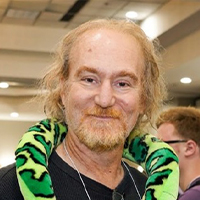
It is with profound sadness we share the untimely passing of Dr. Eric Swain. Eric grew up near Chicago and graduated from Willowbrook Highschool in 1981. He then followed his older brothers to University of Miami, where he received two Bachelor’s degrees, a Master’s degree, and his PhD.
Eric started at the USGS in 1988 as a student intern while completing his PhD in Civil Engineering. After finishing his PhD, he was hired full time in the Miami Subdistrict of the Florida Water Resources Division of the USGS. Over the organizational changes of the USGS water office in south Florida, Eric had served as a Surface Water Specialist, and a Research Hydrologist, during which he also taught Fluid Mechanics for a few years at U. Miami. Eric has had a prolific career working on a variety of projects focusing on numerical modeling of surface-water dynamics, interactions between surface-water and shallow groundwater, and field methods and statistical analyses for hydrologic parameterization. He applied this expertise to ecosystem restoration, habitat suitability and modification, hydrologic hazard and water-availability projects. His USGS profile page captures some of his professional work at: https://www.usgs.gov/staff-profiles/eric-d-swain
Many of his projects focused on the Everglades and surrounding urban areas of South Florida, but he also developed models and provided hydrologic analyses in Puerto Rico, northern Florida, across the Southeastern CONUS region, St. Kitts and Nevis, and was recently working on projects in Georgia and Hawaii. He worked with so many of us across the USGS, in the Southeast Region, in Water, Ecosystems, and other units, as well as our federal and state partners.
Many of us also were lucky to know Eric the artist. Eric had a passion and talent for filmmaking. He shared his films with his USGS and scientific colleagues – by entertaining us with his films at holiday parties, showing us the science behind special effects in brown bags, and recruiting his colleagues for acting roles in his films. Films listed in IMDb include Longevity (2005), Planet X: The Frozen Moon (2011 –award-winning and available on Netflix), and SuperPhaser (2016), and there are many others.
Eric was a bright, interesting, funny and genial fellow. He left us too soon, and we will miss him very much.
He is survived by his brothers Michael and Matthew Swain.
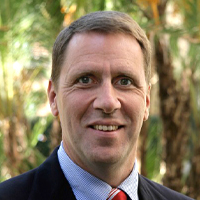
Havens was a leading international expert on aquatic research, management, education and outreach. His area of expertise included the response of lakes and estuaries to natural and human-caused impacts such as nutrient enrichment, drought, climate variability and hurricanes. Havens was named interim director of Florida Sea Grant in 2007 and director in 2008. His achievements include the creation of the biennial Florida Sea Grant Coastal Science Symposium, the formation of the program’s first advisory council in 2009, and the leadership of the university’s oyster recovery team that addressed the collapse of the commercial oyster fishery in Apalachicola Bay.
Before his passing, he was leading the UF/IFAS Harmful Algal Bloom task force, an effort that applies the University’s considerable research and outreach expertise to the blue-green and red tide algae blooms affecting nearly every body of water in Florida. Havens earned his B.A. in biological sciences from the State University of New York at Buffalo in 1979, and his master’s and Ph.D. in biology from West Virginia University in 1981 and 1984, respectively. Before joining the University of Florida as professor and chair of the department of fisheries and aquatic sciences, he served as chief environmental scientist at the South Florida Water Management District from 1993-2004, where he became one of Florida’ s most respected voices on the science behind the management of Lake Okeechobee and the Everglades.
He has published more than 160 peer-reviewed journal articles and 20-plus extension publications. His latest papers reflect collaborations with international scientists about the effects of climate change and eutrophication on lakes and estuaries, the future of controlling harmful blooms in the face of climate change and the role that nitrogen pollution plays in stimulating toxic blue-green algae blooms. Havens was a member of the National Academies of Sciences, Engineering, and Medicine committee that evaluates progress on the Comprehensive Everglades Restoration Plan. He was also a member of the board of directors for the Florida Ocean Alliance and the Florida Institute of Oceanography. He was the 1999 recipient of the Edward Deevey, Jr. Award from the Florida Lake Management Society, given to individuals contributing to the scientific understanding of Florida’s water bodies. He served as associate editor of the research journals Hydrobiologia and the Journal of Plankton Research.
An avid amateur photographer, Havens founded a Facebook community titled Photography with Classic Lenses that grew to more than 11,600 members. He created and co-hosted the Classic Lenses podcasts that were listened to by thousands of amateur and professional photographers around the globe.
Havens is survived by his wife, Pam, and son, Andrew.
